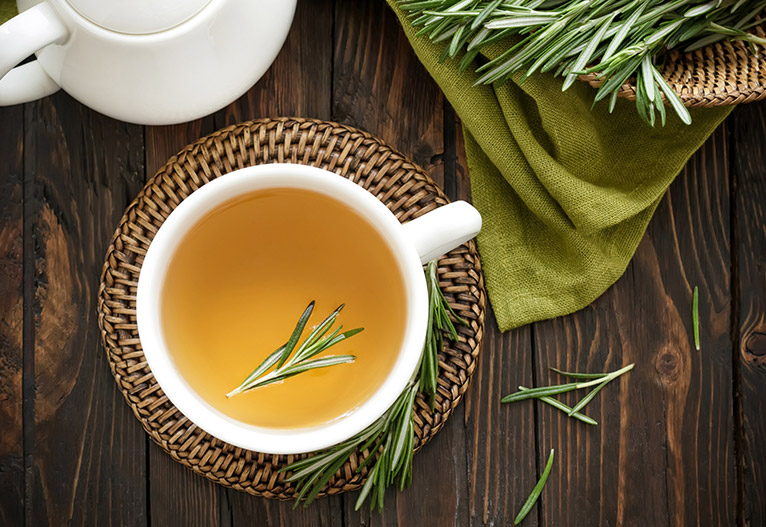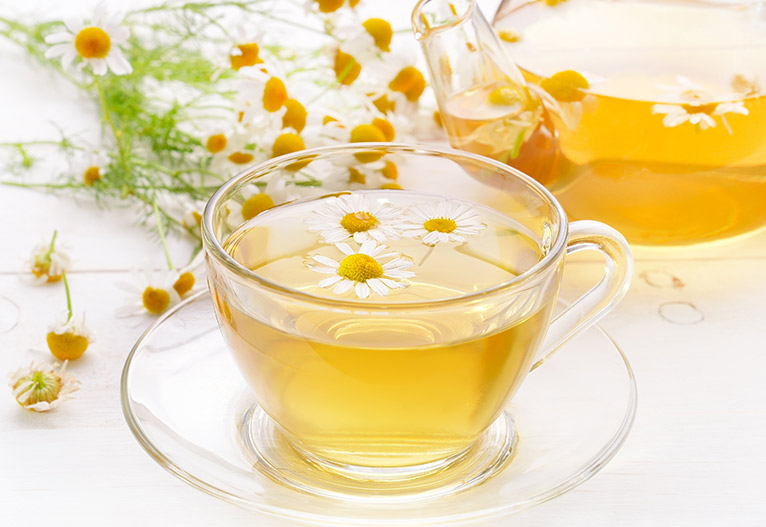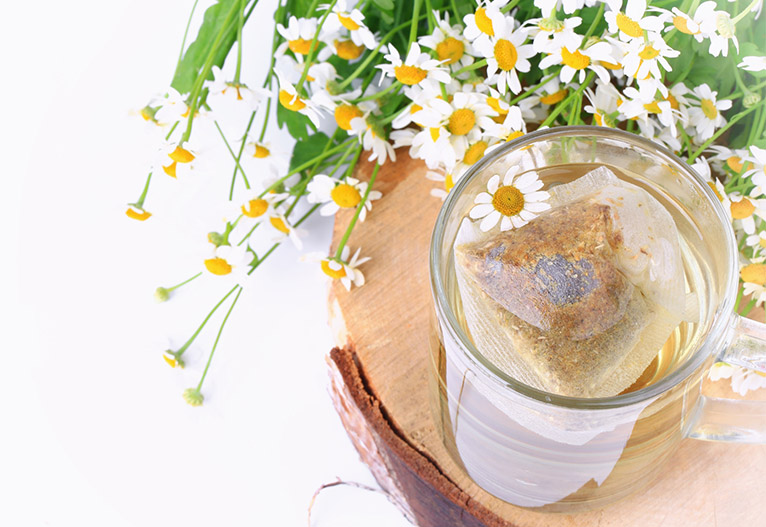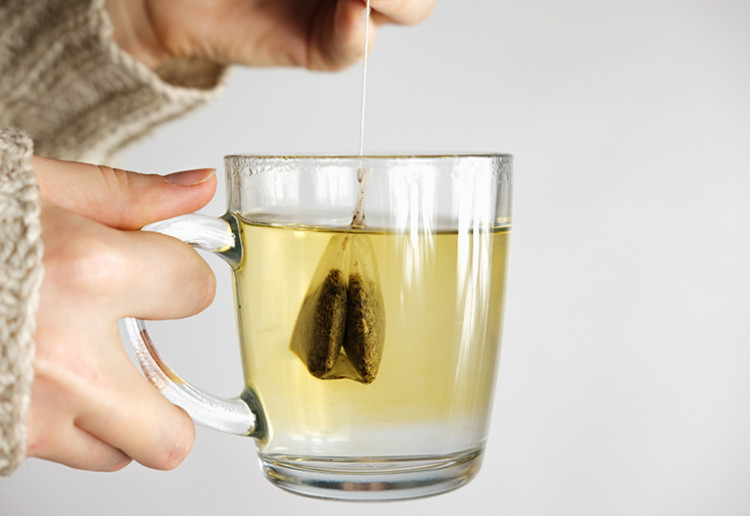Tea has been praised for its soothing properties for centuries – but when it comes to stress relief, which tea is best? We asked a Functional Medicine Naturopath for her pick of the bunch.

Chantel Ryan is a Functional Medicine Naturopath and former corporate lawyer. The founder of Real Functional Health, she helps busy women and professionals recover from burnout, balance hormones, heal their gut and restore long-term health through functional testing and personalised wellness plans.

Ever been told to have a cup of tea and calm down? It turns out that’s not just a throwaway line, especially if that tea is chamomile.
As a functional medicine naturopath with a former life in law, I’ve seen firsthand how stress impacts every system in the body, from hormones to digestion to sleep. And while getting to the root cause is always important, I’ve found that small daily rituals go a long way in helping the body unwind. One of my favourites? A warm cup of chamomile tea.
What is chamomile?
Chamomile is a flowering herb in the daisy family, traditionally used for its calming and digestive properties. The two main types are German chamomile (Matricaria recutita) – most common in teas – and Roman chamomile (Chamaemelum nobile). Both offer gentle, natural support for the nervous system.
Why chamomile works for stress
Chamomile is widely considered a mild tranquiliser. A key compound, apigenin, binds to GABA receptors in the brain to promote relaxation without causing sedation1. It’s also caffeine-free and gut-soothing, which is ideal for people who carry stress in their digestion.

What the research says
Chamomile’s calming effects and long history of traditional use are backed by emerging clinical evidence. A 2019 review found that chamomile extract reduced symptoms of generalised anxiety disorder and improved sleep after just two to four weeks of use2.
A 2024 review published in Clinical Nutrition Research concluded that oral chamomile intake may help reduce anxiety in a range of populations, including individuals with GAD, postmenopausal women and those experiencing menstrual-related anxiety3.
Meanwhile, a 2024 systematic review in Complementary Therapies in Medicine found that daily consumption of chamomile tea improved sleep quality, particularly by reducing nighttime awakenings and supporting sleep continuity4.
How to use chamomile tea to relieve stress
Chamomile tea works best when part of a consistent routine. I often suggest:
- Steep for 5–10 minutes with a covered mug to trap calming oils
- For a truly calming wind-down ritual, put your devices away and sip it slowly
- Enhance it with lemon balm or magnesium for added calm
It can also be used as a midday pause, especially during high-stress times.
But chamomile isn’t suitable for everyone
While chamomile is gentle, it may not be the right choice for everyone. Those with allergies to ragweed or daisies, pregnant individuals, or anyone on blood-thinning medications should check with a practitioner before they sip. It’s also not recommended for infants under six months.

Chamomile tea isn’t a magic cure for stress, but it’s one of the easiest, most effective ways to support your nervous system. In a world that rarely stops, a simple tea ritual can help your body remember to breathe, reset and slow down.
Sources:
- https://pmc.ncbi.nlm.nih.gov/articles/PMC2995283/ ↩︎
- https://pubmed.ncbi.nlm.nih.gov/31006899/ ↩︎
- https://pmc.ncbi.nlm.nih.gov/articles/PMC11109927/ ↩︎
- https://pubmed.ncbi.nlm.nih.gov/39106912/ ↩︎
This article first appeared on Best Health Buys.
Do you have a go-to tea for times of stress? Leave us a comment below!










